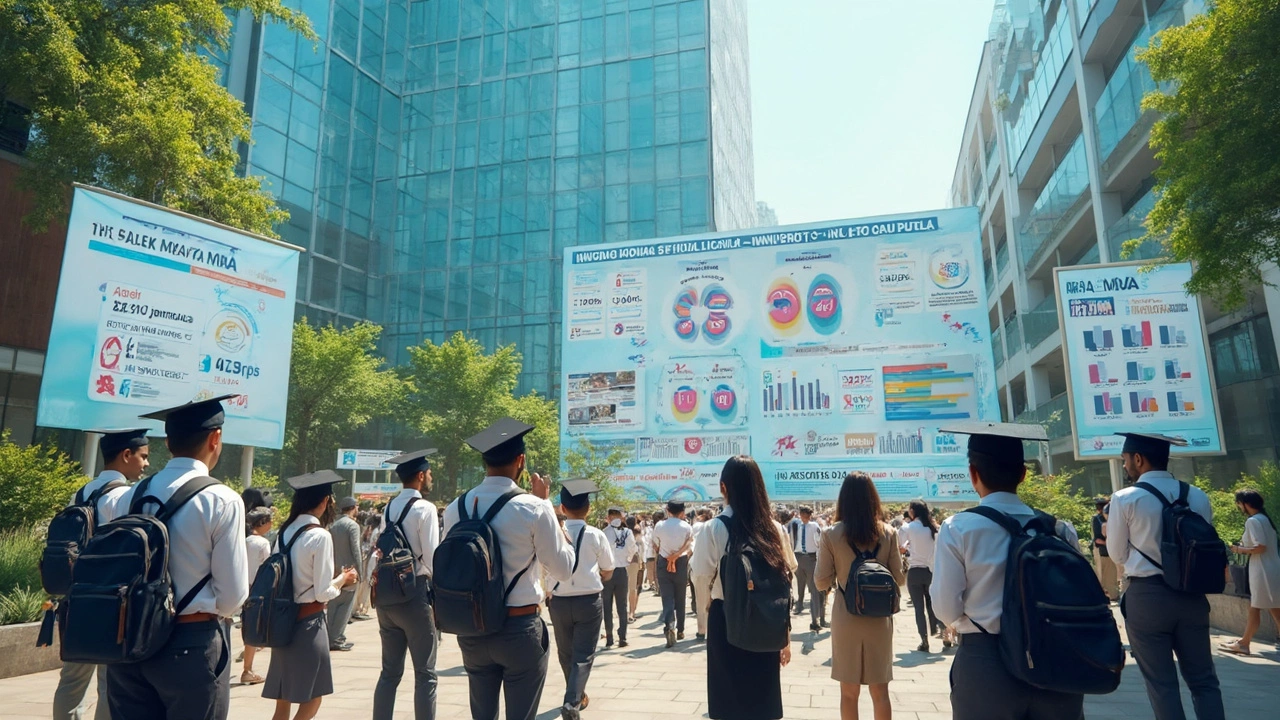MBA Oversaturation: What’s Happening and Why It Matters
If you’re scrolling through job listings and seeing dozens of fresh MBA grads for the same roles, you’re not imagining it. Over the past few years the number of MBA graduates in India has jumped sharply, and the job market hasn’t kept up. That mismatch creates what we call MBA oversaturation – more qualified candidates than available positions, which can push salaries down and make hiring managers picky.
Why did we get here? Business schools expanded their seats to meet demand, online programs exploded, and the pandemic pushed many to upskill while stuck at home. The result? A steady stream of new MBAs entering the workforce each spring.
Signs the MBA Market Is Saturated
First, notice the drop in entry‑level MBA salaries. Reports from 2024‑2025 show average starting pay slipping by 5‑10% compared to a decade ago. Second, recruiters are asking for more experience on top of the degree. If a job posting now reads “2‑3 years of consulting experience plus an MBA,” that’s a clear sign of tighter supply.
Third, the number of applicants per opening has risen. In top consulting firms, it’s common to see 30‑40 MBA candidates fighting for one analyst spot. Finally, you’ll see more MBA programs emphasizing niche specializations – fintech, data analytics, sustainability – because generic MBAs just aren’t standing out.
How to Make Your MBA Work for You
Don’t panic. You can still turn an oversaturated market into an advantage. Start by picking a specialization that aligns with industry growth. For 2025, data‑driven roles, digital marketing, and healthcare management are hiring faster than traditional finance positions.
Second, build real‑world experience while you study. Internships, freelance projects, or part‑time consulting gigs add the practical edge recruiters crave. Even a short stint at a startup can showcase agility and problem‑solving skills.
Third, network strategically. Attend industry webinars, join alumni groups, and reach out to mentors who can refer you directly. A warm introduction often bypasses the crowded applicant pile.
Fourth, showcase measurable outcomes on your resume. Instead of vague bullet points, write things like “Led a market entry analysis that identified a $2M revenue opportunity” – numbers catch the eye.
Finally, consider geography. Some metros like Bangalore and Hyderabad have a higher demand for tech‑focused MBAs, while Tier‑2 cities are still hungry for general management talent. Relocating can open up less‑competitive job pools.
In short, MBA oversaturation means you have to work a bit harder to prove your value, but it also pushes you to be more focused and proactive. Choose a growth niche, gain concrete experience, network like you mean it, and let data speak for your achievements.
When you balance these moves, the flood of MBA graduates becomes less of a threat and more of a signal that the business world is evolving. Your MBA can still open doors – you just need to know which door to knock on and why you belong there.
Is an MBA Worth It in 2025? Navigating Oversaturation and Real Opportunities
Is the MBA still worth pursuing in 2025? Get real stats, facts, and insights into MBA oversaturation, job market saturation, and maximizing your MBA return.
